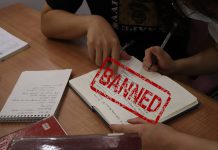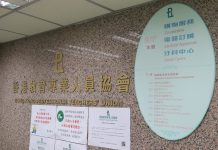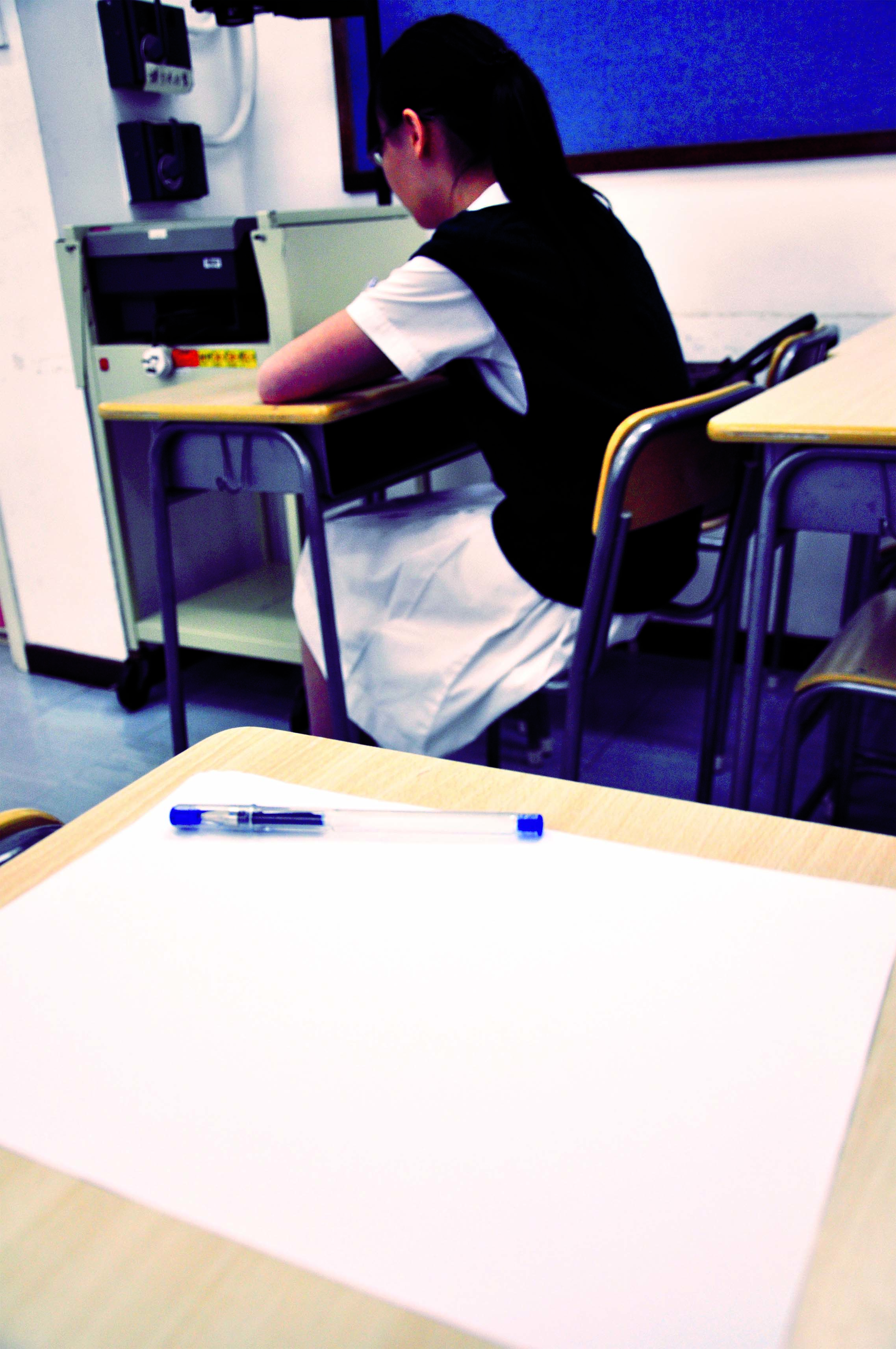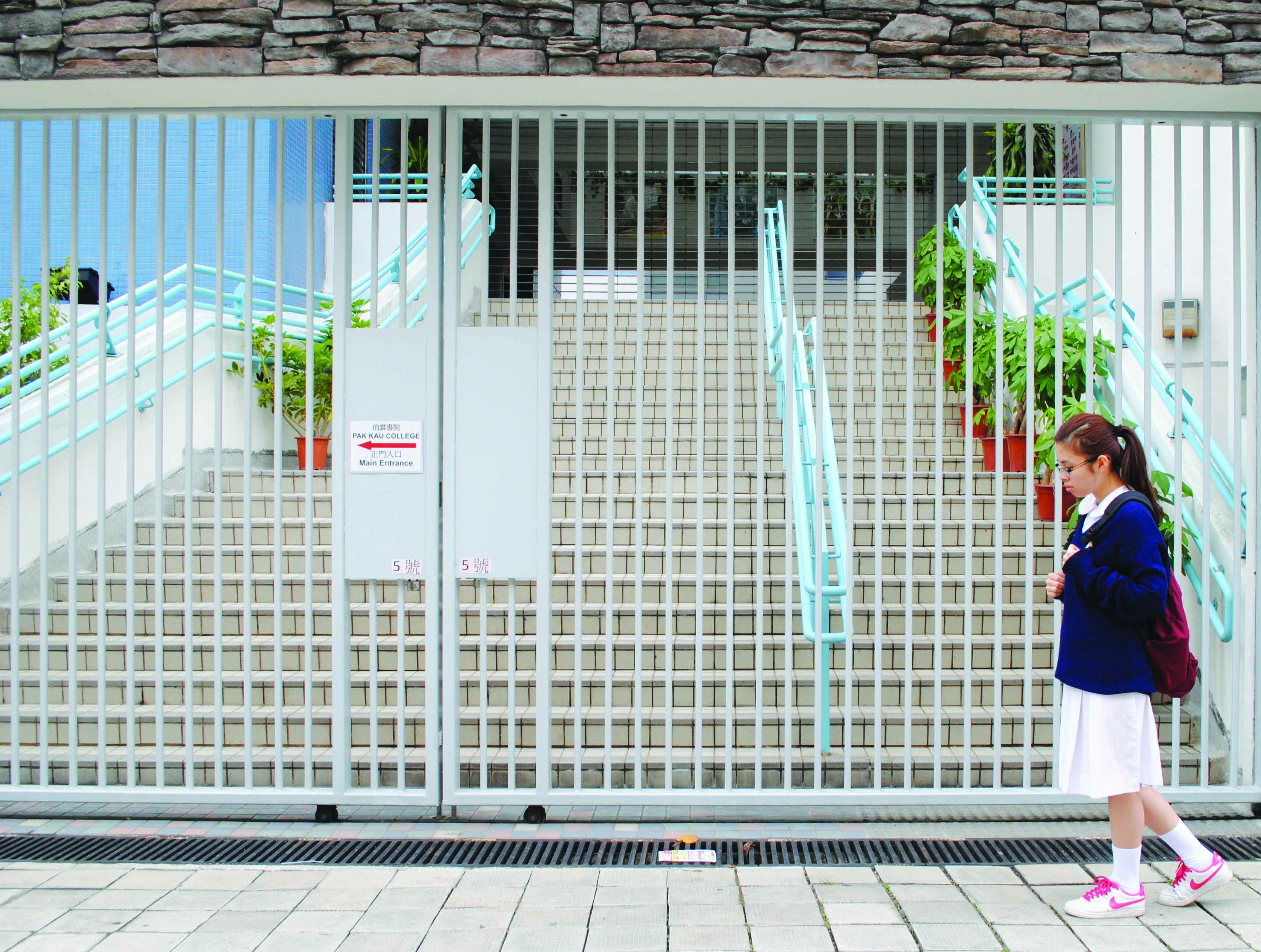DSS schools receive subsidies and charge fees but are they good value for money?
Reporters: Joana U Hoi Teng, Gavin Li Chi Wai
The best primary school, the best secondary school and the best university – these are the things all parents want for their children. Since 1991, Hong Kong’s parents have been able to choose from more than just government and aided schools for their children’s education.
The Direct Subsidy Scheme (DSS) was introduced in that year with the objective of promoting excellence and injecting diversity into the local school system through the development of a strong subsidized private school sector. The rationale was that this would give parents and children more choice.
Schools in the scheme are given subsidies from the government for every child they enrol. But unlike government schools, they can also charge tuition fees and receive funding from other sources, such as donations.
In return for the government funding, the schools are monitored by the Education Bureau (EDB). The Bureau is supposed to make sure the schools comply with stated admission requirements and agreements, conduct quality assurance, vet the schools’ audited accounts and issue guidelines. Authorities will also carry out investigations if there are complaints against the schools.
On the face of it, it seems this monitoring system is comprehensive. So, are DSS schools really better choices for parents?
Lam Kin-wah’s response is affirmative. “Basically, the quality of DSS schools is undoubted,” says the chairman of the Hong Kong Direct Subsidy Scheme Schools Council (DSSSC), who is also the principal of the Fukien Secondary School.
Lam says DSS schools have more flexibility in their operations and curriculum and can offer higher quality education because of their extra resources. Using his own school as an example, he says it has offered both English as medium of instruction (EMI) and Chinese as medium of instruction (CMI) classes since early in 2000. Aided secondary schools just resumed EMI classes in 2009. If parents want their children to study in an EMI class, DSS schools would be a choice for them.
Another advantage, says Lam, is that DSS schools carry out small-class teaching, whereas this policy has only been implemented in aided primary schools. “You can see that the class size of DSS schools is smaller than aided schools. That is why parents prefer DSS schools,” Lam explains.
This is borne out by Iris Wong Wai-ling, whose two children went to DSS schools. Wong says her children got more attention from their teachers because there were only around 30 students in their classes. “You can easily approach their class teachers and they will remember who your children are. They will not treat you as passersby,” Wong says. She also believes DSS schools have the flexibility to recruit more teachers to improve their teaching quality.
For Wong, a measure of the quality of DSS schools is their ability to recruit good students. “I quite believe that input will affect output,” Wong says. “If schools admit good students, it is unlikely that their performance will worsen in five years time.”
But not all parents are as positive about the quality of DSS schools as Wong is. Mrs. Cheung, whose son graduated from Logos Academy in Tsang Kwan O in 2009, was not satisfied with the school.
Cheung, who refused to reveal her full name, paid $20,000 in tuition fees per year, an amount she found unreasonable. “The school charges such a big amount, but I think it is worse than other ordinary schools. I really do not know where the school fee goes,” she says.











































Gavin based on an un-established hear-say complaint on Logos Academy and then took that golden opportunity to elaborate in an evil way without going deep with the complainant. Instead, Gavin did hold an interview with more than 10 parents from that School for more than an hour and the parents gave many other points of views and many data to defend the School. During the meeting Gavin admitted that no secondary examination on the content of the complaint was ever made with the complainant, yet eventually Gavin simply ignored all responses from the parents and even concealed in this article such a meeting with them. I am deeply regretted that the standard of Gavin is so low and his view is so bias. It is really a sad story to the press media. Shame on Gavin and Varsity for the unfaithful and unbalanced report!
Please see Gavin’s reply at the end of this thread.
For more exact info, there were a total of 8 parents having interviewed by Gavin. You can imagine how many wordings spoken and how many ideas were thrown out during the meeting! It is really irresponsible for Gavin not only betrayed the parents but also cheated the public. That’s the real face of a journalist!?
The 8 parents are parents of students studying in the School. They could not be termed as “a source close to the School” nor their lengthy expressions could be totally neglected. A teacher also attended the interview as an observer or facilitator. The content of the so-called “a source close to the School” had already been told to Gavin over the phone by the teacher prior to the interview. My wife also commmented the article now appears so naive, irresponsible, unfactual and intentional while the interview was indeed a gesture or trick played by Gavin.
這篇文章嘩眾而不取寵,故作高深而理論膚淺,只是一般炒作及抽水、不值一哂的小品,乍看更似一篇左抄右襲各大報章新聞導報的功課。對主題的探討不深、論證流於一般、更以七十多所直資學校中發生的一宗不盡不實的所謂投訴來以偏蓋全,報導失實,容易誤導讀者。其中提到的老師更替、大班教學、課本取材、行政混亂等情況,姑且不替某校辯論還擊,卻是不論直資與否,全球新舊學校都曾經、正在或不時都有可能遇到的難題,肯定並非香港直資學校所獨有!
come on, cowards, where were my 4 previous adverse comments? You seemed to have concealed them all?
Please be assured there are no attempts to conceal any comments. The comments section is moderated to prevent spam and other forms of abuse.
The moderator has been very sick for the past two weeks and so has not attended to the site.
I’m one of the eight Logos Academy parents group-interviewed by Garvin.
The meeting was interactive and the exchanges of ideas open, effective and objective. However, to my surprise and disappointment, nothing that came out from that hour-long interview was mentioned in the article!
Instead, when referring to the Logos Academy, the writer simply quoted the details from a complaint case, as Garvin has admitted at the meeting, that hasn’t been further investigated with the complainant. And there you go; a one-sided story was reported in the Varsity as if the claims in the complaint were all true.
Where did the opinions shared by the parents go?
In the interview, the issues related to the complaint case was one of the main topics discussed; during course of which we even debated, amongst the parents, in details and shared views from different angles, analyzed and elaborated with examples. The opinions thus given were well rounded and comprehensive, which I truly believe served to provide valuable new insights to the writer on the issues at hand. But all these inputs have gone in vain.
The following questions thus came to my mind:
a) What was the purpose/intention of interviewing us?
b) Was there a formed opinion in the writer’s mind before the interview?
c) Weren’t we an ideal group to whom the writer can refer to examine the information collected from the “source close to the school”?
d) Or, did the writer assume that the parents were also “sources close to the school” so all those voices heard were deemed worthless?
I’m not sure if my questions will be answered, but my suggestions to the writers are:
a) Examine your collected information and verify your assumptions
b) Respect your interviewees – those who have given time and put their hearts in sharing views and experience with you – simply by being prepared to listen and reflect on their voices.
Remark:
The parents were a mixture of professionals, housewife, entrepreneur, senior executives, educators, …etc. One thing definitely in common is we all care much about our children’s education.
Dear Parents,
We have recently received your comments on our story, “Weighing Cost and Quality”. We sincerely thank you for your valuable comments; however, we wish to clarify some points regarding our reporting process and the story.
In your comments, you claimed that the materials in our story are untrue and misleading and the problems of Direct Subsidy Scheme (DSS) schools we stated are also found in other schools. You expressed your dissatisfaction that we only quoted an “untrue complaint” of one particular DSS school to represent the weaknesses of DSS schools as a whole. You also expressed your disappointment that we did not include the information provided by parents of The Hong Kong Chinese Christian Churches Union Logos Academy in the story.
Through our story “Weighing Cost and Quality”, we aspired to investigate the quality of DSS schools to see if they do provide the expected value for the school fees charged. We aimed at evaluating DSS schools as a whole and giving an overall picture of them to our readers so that they could decide their view towards DSS schools by themselves. To provide a more comprehensive and fair analysis of the DSS schools, we interviewed people from different sectors, including a principal, teachers, parents and a scholar. We undoubtedly wish to write a balanced story consisting of accurate information.
We wish to clarify that we had no intention to deliberately portray DSS schools in a negative light or to target any DSS school in particular. We had no intention to construct a perception that there are problems in all DSS schools, such as high turnover rate of teachers. Our assertion could be supported by the content of our story. Not only did we reflect the relatively negative opinions of parent Mrs. Cheung in our story, but we also included positive comments on DSS schools by other people, such as Lam Kin-wah, the chairman of the Hong Kong Direct Subsidy Scheme Schools Council who is also the principal of a DSS school, and Iris Wong Wai-ling, the parent of two children who went to DSS schools. We did try our very best to provide a balanced analysis of DSS schools.
In fact, once we got the information from Mrs. Cheung, we immediately sought response from the Logos Academy for the sake of verifying the complaint and pursuing a balanced report. Nevertheless, the Logos Academy refused to respond at once when we asked the school about the negative feedbacks provided by a parent whose son graduated from the school in the previous year. However, Miss Kok Yuk-lan, on behalf of Logos Academy, arranged an interview for our reporter with the parents of the school in late February. Miss Kok also promised we might ask for the school’s response during that interview. We thus took this opportunity and conducted the interview at Logos Academy.
We sincerely thank the eight passionate parents who had provided our magazine with their own experiences in the academy. Nonetheless, we believed that only a response from the school would be appropriate in the light of Mrs. Cheung’s comments on the Logos Academy. After the interview in late February, we still kept communicating with the school teacher Miss Kok for the school’s response. Eventually, we agreed to quote “a source close to the school”. If you wish to know the identity of this source, you may contact the school directly, as we agreed not to name them. We clarify that “the source close to the school” does not represent the information provided by the eight parents. Notwithstanding, it is regrettable that we were not able to include the views of the eight parents due to the limited space for our story.
Indeed we did interview some other people which they do not appear in our story but had provided us with valuable information as well, including another parent whose child graduated from the Logos Academy who shares Mrs. Cheung’s comments. We conducted that interview after the interview with the eight parents of the Logos Academy in order to further verify Mrs. Cheung’s complaint.
Assisting student reporters in the reporting process and writing the story, the instructor of our school requires us to give a fair, balanced report with accurate information. Reporters of Varsity are also highly conscientious and careful when working for the publication. We welcome opinions from different people regarding Varsity and we definitely strive for improvements of our publication.
Lastly, we would like to thank you once again for your comments and we hope we could clarify some points that you might in doubt. Should you have any enquiry please contact us at 26097680 or varsity@cuhk.edu.hk.
Best Regards,
Gavin Li
Reporter of Varsity, CUHK
*************************************
Varsity is an award-winning magazine created for the tertiary students and faculty of Hong Kong. It is written, edited and designed by students in the School of Journalism and Communication at the Chinese University of Hong Kong. The word varsity, like university, means pertaining to higher education.
Thank you for Gavin’s brave but belated response. I also got to apologize for my instant, rude but natural manners and tones used in my previous comments. I am not unaware or unfamiliar with the difficulties in presenting an article associated with controversial topics, especially in an impartial way.
Nevertheless, it is a pity that Gavin did mention the “specific complaint” with the specific School’s name (if the article aimed at a general assessment over all the DSS in HK or just pinpointing the DSS system) and treat the unverified complaint as if it were well-established but on the other hand, Gavin and his partners “were not able to include the views of the eight parents due to the limited space for our story”. Gavin, you know your excuse of “limited space” is no excuse? This point further exposes your weaknesses and limitations.
In Gavin’s response, he also further stated that “We sincerely thank the eight passionate parents who had provided our magazine with their own experiences in the academy. Nonetheless, we believed that only a response from the school would be appropriate in the light of Mrs. Cheung’s comments on the Logos Academy.” Turning around, Gavin added that they “conducted an interview (with another parent whose child graduated from the Logos Academy who shares Mrs. Cheung’s comments) AFTER the interview with the eight parents of the Logos Academy in order to further verify Mrs. Cheung’s complaint”.
Up to this stage, I think that Gavin should have been very chaotic in his plan, schedule, interview tactics, mindset, judgement and presentation. Unfortunately I am much obliged to reinstate that my previous very adverse comments against this article still stand. I am also very sorry for the 8 parents whose wordings undoubtedly have been totally despised.
Thank you for your comments, Mr Gary Leung.
Please be assured that we do not “despise” the parents or their words, as you state in your comment.
However, we do stand by our story.
We hope that everyone will agree that it is reasonable to keep attacks of a personal nature off the comments section and we shall endeavour to do so.
Yes admin, agree with your comment on safeguarding one’s reputation as we defending the School’s. Wish to end in this stage and those involved have gained something out from our comments.